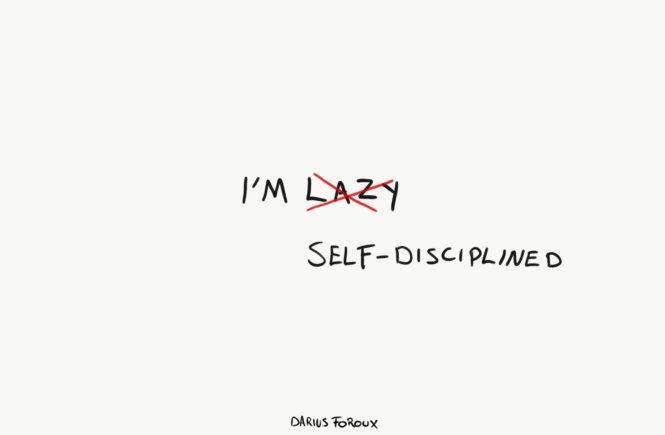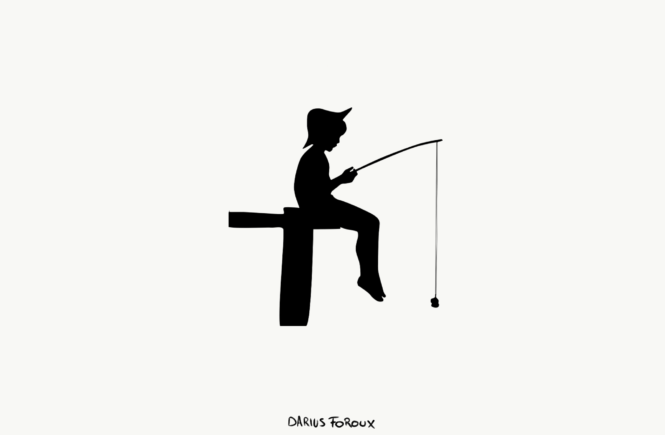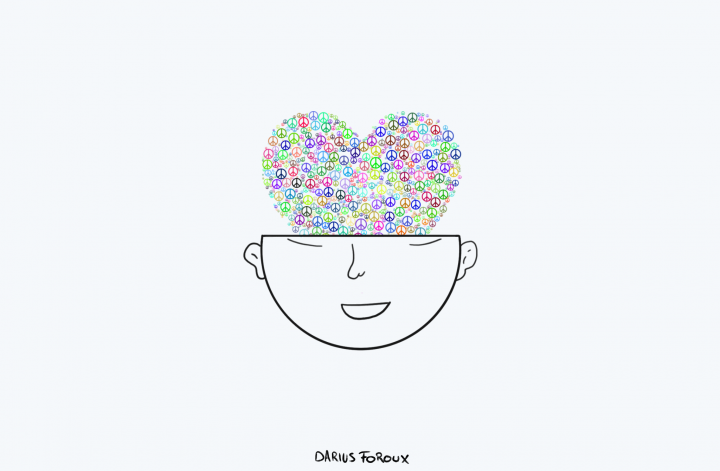Self-discipline is the ability to make yourself do things even if you don’t want to do them. That’s one of the most important qualities in life. Especially in 2020, since we’re all forced to work and spend more time at home. There’s not much we can do outside of the house. That requires self-discipline. A lot of discipline.
We can’t travel, eat out, shop comfortably, watch movies at the cinema, go to concerts, and so forth. And yet, we’re expected to behave like good people. We’re expected to work remotely, stay in shape, participate in video calls, take online courses, keep in touch with family, you name it.
Without self-discipline, we will revert back to giving up. Because whether you’re aware of it or not, we’re all headed towards chaos. That’s the natural direction of life.
We need self-discipline to fight back. But how do you develop it? It remains a complex issue, and no one has the answers. Jocko Willink simply says that you must do things and not complain. I like that, but for us mortals, it’s not that simple.
One thing I know is that it doesn’t happen overnight. I prefer to focus on habits that lead to discipline, instead of focusing on self-discipline itself. So here’s a list of habits I’ve adopted that made me more disciplined.
Hold yourself accountable
If you say you’re going to do something, do it. And if you can’t, have a good reason. That’s the foundation of self-discipline. But you don’t do things so you can prove something to others.
No, you do it for yourself. You hold yourself accountable by writing down your goals, intentions, and actions. No one is watching. Just be yourself.
This doesn’t have to be complicated. I write down what I want to do every single day in my journal. Then, at the end of the day, I look at what I actually did. When your actions match your words, you’re on the right track.
Be honest in your communication
To yourself and to others. Honesty is difficult for most of us because it requires humility. We’re often afraid of telling the truth because we think we look weak.
But the opposite is true. When you’re not honest, people can tell. As a result, no one will take you seriously. We all have weaknesses and issues. There’s no need to hide it. There’s also no need to play the victim. Simply stick to the truth.
When you keep on being honest with yourself and others, it’s easier to be disciplined. Because it’s not the end of the world when we screw up. I have bad days too. I eat junk food. I skip my workouts. But I’m honest about it when I do. That brings me back on the right path.
Set the right example
Never expect people to do something you’re not doing. And if you’re doing something others are not doing, don’t expect them to do it.
“What’s that?” I know. It sounds like a paradox. It comes down to this: Do the right thing and have zero expectations of others. If some people don’t want to do that themselves, it’s not your problem. Keep on setting the right example. This is one of the biggest cliches in the world, but let your actions speak for you.
Improve every day
Most people don’t have the patience and drive to improve. Recently, a person who bought my writing course said it was too much work to improve their writing. No kidding?!
Of course it’s hard to improve yourself. That’s why most people don’t do it. I gave that person a refund. It’s not for you. There are enough people who do want to improve themselves. If you have the will to improve, you don’t have to worry about self-discipline.
But you need to have a reason to improve. Why do you want to get better at a skill? What do you want to use it for? Why do you want to get in shape? What will you do when you’re fitter?
Think on paper
Putting your thoughts into words helps you to understand yourself and what you’re doing. I often come up with an idea that sounds great in my head.
But then I put my idea into words. I start thinking on paper. I simply write down my thought process. I start like this: “I have a new idea. It’s…” By the end of the page, I know whether it’s useless or not. Often, my behavior is not a matter of self-discipline—or a lack of it.
Sometimes you don’t do something because it’s not the right thing to do. So always think on paper. After you’ve scribbled down your thoughts, let it rest, and get back to it a few days later.
Then, you think “this is great” or “this is stupid”. Either way, you win. Why? You used your brain as a tool.
Do what you can
Look, life is far from perfect. We will never have the perfect circumstances to work. You know, I wish I lived in a mansion on the beach. I wish it never rained when I want to go outside. I wish, I wish, I wish. It’s all fun and games. But in life, we must do what we can with what we have.
- Tired? Do what you can.
- Fired? Do what you can.
- Got to pay your bills? Do what you can.
- Shitty house? Do what you can.
- No friends? Do what you can.
(Fill in your excuse)? Do what you can. Complaining is for losers who have zero self-discipline.
Look ahead, very far ahead
It will not always remain summer. Life moves in cycles. Sometimes it’s great for a long time. And sometimes it’s bad for a long time. Things happen. Economies collapse. Jobs disappear. Natural disasters happen. Pandemics shut down life. You name it.
The best way to deal with all of it is to be prepared. Train your body and your mind. Build a cash buffer. Get rid of excess. Life is very long.
Live NOW
But none of the above means you should always think about the future. Life happens NOW.
Working from home, reading a book, going for a walk, spending time with loved ones; all those things happen right now. You’re not helping yourself by being lost in your thoughts.
You only help yourself by being disciplined about living in the present. I remind myself of this several times a day.
Did you know that living in the present is a skill? You’ve acquired it once you’re aware of your thoughts. That’s all. So next time you’re preoccupied, clenching your jaw, and not paying attention to what’s in front of you, snap out of it. “Just like that?”
Yes, just like that. Get back to what matters most: The one thing that’s right in front of you.




